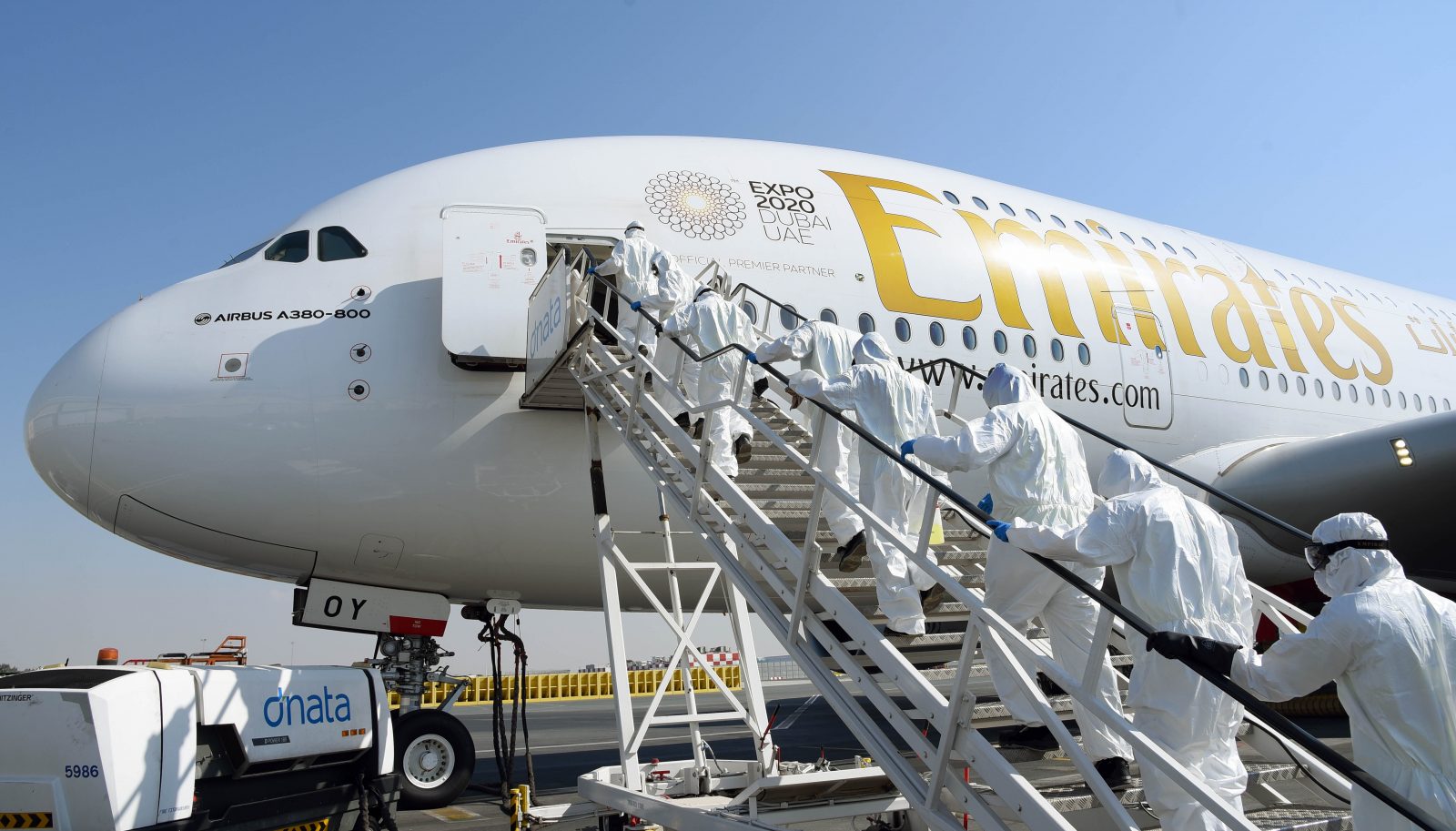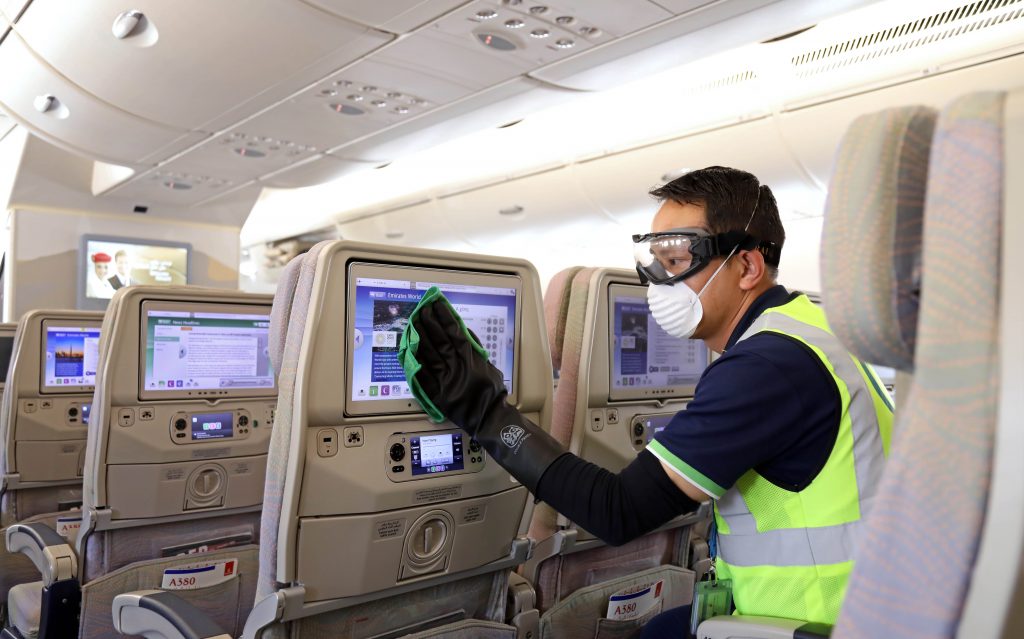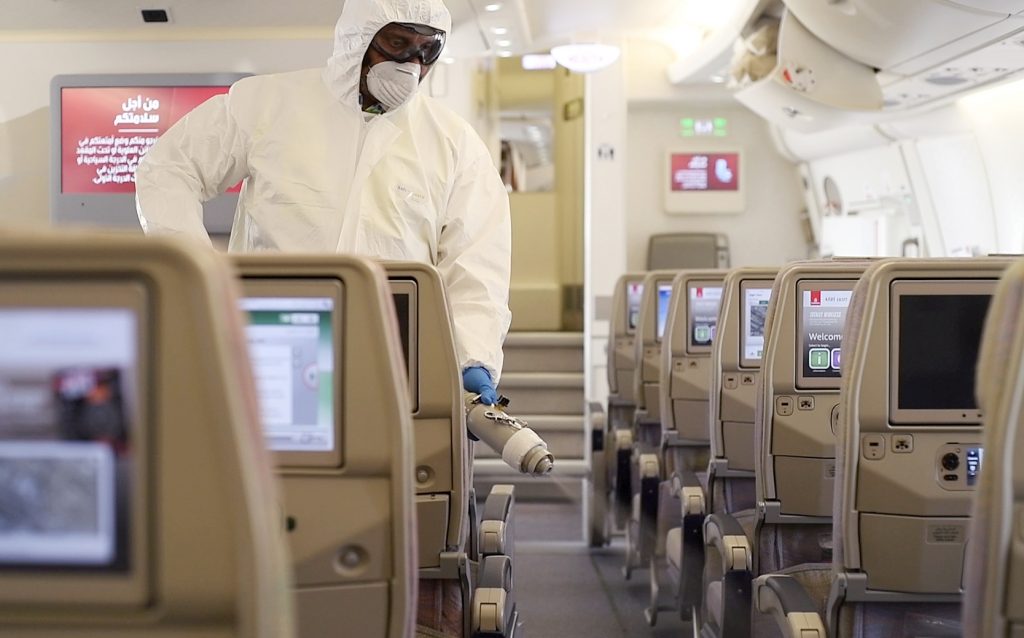
Emirates has sought to reassure nervous passengers by detailing the extensive cleaning regimen its aircraft go through before every flight as passengers shun air travel because of the COVID-19 Coronavirus outbreak. When a suspected or confirmed case of COVID-19 has been onboard, the airline will go even further with an eight hour deep clean.
The Dubai-based airline joins a growing list of carriers that have not only stepped up their cleaning efforts but are using it as a marketing tool to assuage fears and encourage passengers back onboard. In recent days, similar videos have been released by Qatar Airways, Cathay Pacific, Thai Airways and Alaska Airlines.
In this crazy new reality, airlines have taken to advertising hazmat suited cleaners as a selling point rather than the usual pictures of luxe First Class suites, sumptuous food and fine wines and Champagne.
Emirates says that in most cases, it can continue to clean one of its Boeing 777’s or Airbus A380 sumperjumbos in just 60 minutes. A team of 18 cleaners are required for a 777-300, whereas a 36-strong team go about cleaning the double-deck A380’s. On average, Emirates is putting 248 aircraft through standard process every day.
But if the airline has carried a passenger with either a confirmed or even a suspected case of COVID-19, then the plane will go through an eight hour long ‘deep clean’.

Aircraft cabins will be fogged and misted with disinfectant, seat covers will be replaced and all hard surfaces wiped down with an approved chemical “proven to kill viruses and germs” and that leaves a long-lasting protective coating against new contamination of viruses.
Most of its efforts are being concentrated on hard-surfaces because current research suggests Coronavirus is primarily passed on by touch. From windows, tray tables, seatback screens, armrests, seats, in-seat controls, panels, air vents and overhead lockers in the cabin, to lavatories, galleys and crew rest areas, pretty much every hard surface will be wiped down with disinfectant.
Emirates also says it will replace the powerful HEPA filters whenever a COVID-19 case has been onboard – the filters are proven to filter out 99.97% of viruses, as well as dust, allergens and microbes.
Similar processes have been detailed by the likes of Delta, United and American Airlines. Some U.S. carriers have also altered their in-flight service routines, banning drink top-up’s, removing self-service snacks and discontinuing onboard recycling.

But some airlines have faced criticism over their aircraft cleaning amidst the Coronavirus outbreak. Several days ago, an inspector “slammed” Qantas for “potentially exposing passengers and workers to the coronavirus.”
The report from SafeWork NSW noted that an inspector had “observed workers wiping over multiple tray tables with the same wet cloth with no disinfectant and cleaning unknown liquids on floors and surfaces.”
It also found that cleaners were “required to handle wet and used tissues, used face masks, soiled nappies and the workers advised they occasionally have to clean vomit and blood off surfaces.”
Personal protective equipment “was not mandated for the majority of these tasks,” the report found. Qantas has denied the allegations and is considering appealing the notice that requires the airline to improve its safety practices by the end of March.
Mateusz Maszczynski honed his skills as an international flight attendant at the most prominent airline in the Middle East and has been flying ever since... most recently for a well known European airline. Matt is passionate about the aviation industry and has become an expert in passenger experience and human-centric stories. Always keeping an ear close to the ground, Matt's industry insights, analysis and news coverage is frequently relied upon by some of the biggest names in journalism.







